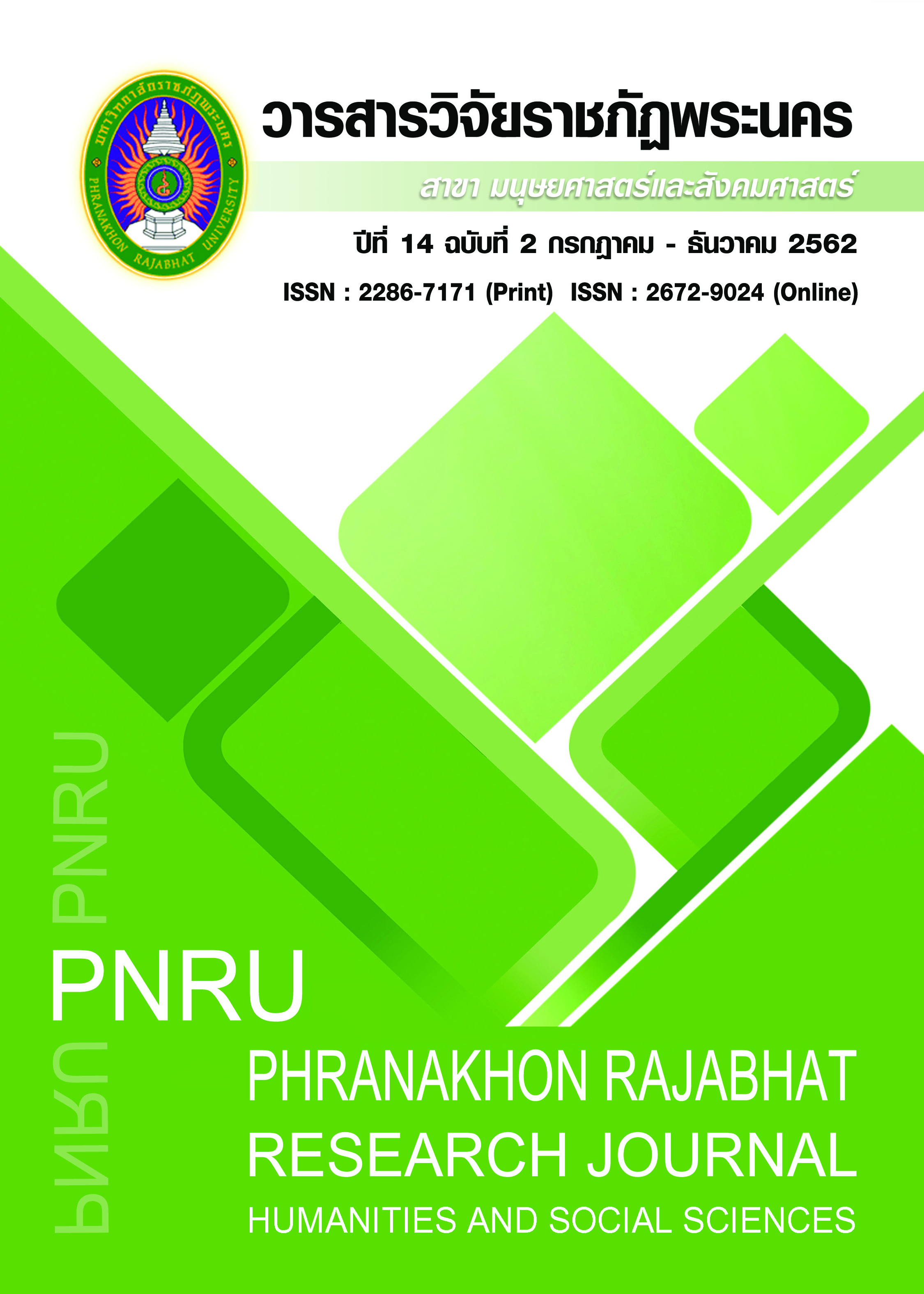A REVIEW OF THE CONTRIBUTION TO SECOND LANGUAGE ACQUISITION: A CASE-STUDY OF THE GRAMMAR TRANSLATION METHOD AND THE AUDIOLINGUAL METHOD
Main Article Content
Abstract
by two approaches in language learning: namely grammar translation method (GTM) and audiolingual method (ALM). Even though they belong to different time periods and they characterize different contexts of learning, they both still could be applied successfully to a classroom environment nowadays. This paper provides some pedagogical implications and insights both for new and experienced teachers in the industry. As this paper argues, both methods have their own advantages and disadvantages and perhaps a balance between the two would be the desired model, especially with reference to Thailand. Moreover, there are various ways to measure the effectiveness of each one, which will subsequently inform teachers of how to approach their lessons both from a theoretical and a practical perspective better.
Article Details
Each publish articles were copyright by Phranakorn Rajabhat University
Any contents which appeared in each articles in the journal were authors personal opinion. It did not relate to Phranakorn Rajabhat University and other instructors in the university. Each authors would take responsibility on their articles. If there are any mistake, the authors will take responsibility themselves
References
Chunsuvimol, B., Boonpok, B. & Charoenpanit, P. (2017). Effectiveness of the audiolingual method: a review of research in Thailand through 2017. Retrieved July 23, 2019, from https://papers.ssrn.com/sol3/papers.cfm?abstract_id=3173528
Kunnu, W. (2017). The Development of Speaking Skills through Audio-Lingual Method. Retrieved July 24, 2019, from https://www.researchgate.net/publication/324178783_ THE_DEVELOPMENT_OF_SPEAKING_SKILLS_THROUGH_AUDIO-LINGUAL_ METHOD
Liu, X. & Shi, F. (2007). An analysis of language teaching approaches and methods-effectiveness and weakness. US-China Education Review. 4 (1). Retrieved July 24, 2019, fromhttps://pdfs.semanticscholar.org/c170/b8059eb89778e683434455af8d05d2f83484.pdf
Mart, C. (2013). The grammar - translation method and the use of translation to facilitate learning in ESL classes. Journal of Advances in English Language Teaching,1 (4). Retrieved September 2, 2018, from https://www.researchgate.net/publication/329268068_The_ Grammar Translation_Method_and_the_Use_of_Translation_to_Facilitate_Learning_ in_ESL_Classes
Munday, J. (2008). Introducing translation studies: theories and applications. 2nd edition. NY: Routledge.
Pongpuen, T., Kimura, L., Kijpoonphol, W. & Anupan, J. (2018). An effect of a direct method on 5th grade students’ acquisition of verb inflection morphemes (-S, -ES, -ED, -ING). International Journal of Research-GRANTHAALAYAH. Retrieved July 22, 2019,from https://zenodo.org/record/1308961#.XUTlDOgzZRY
Prasansaph, W. & Lateh, R. 2018. Effects of integration of grammar translation method and audio-lingual method through facebook for developing taxi drivers’ Englishspeaking ability in specific situations. Retrieved July 23, 2019, from https://www. worldresearchlibrary.org/up_proc/pdf/1865-153917268648-51.pdf
Richards, J. & Rodgers, T. (1987). The audiolingual method. Approaches and methods in language teaching. Reino Unido: Cambridge University Press. Retrieved March 15, 2018, from https://recursos.udgvirtual.udg.mx/biblioteca/bitstream/123456789/1435/1/ the_audiolingual_method.pdf
Sittirak, N. (2015). Grammar - translation method in an EFL class in Thailand: a glance at an English son’s lyrics. Journal of Education Thaksin University, 15 (2). Retrieved July 22, 2019, from https://www.tci thaijo.org/index.php/eduthu/article/ view/49296/40897
Soonpangkhao, W. (2016). Exploring English language instruction at a local Thai teacher college: a qualitative case study. Language Education and Acquisition Research Network (LEARN) Journal, 9 (1). Retrieved July 22, 2019, from https://www.tci-thaijo. org/index.php/LEARN/article/view/102661/82208.
Tassev, V. (2014). The ideal English language course: some insights from both a teacher and a learner of L2. Galaxy, 1. Retrieved July 23, 2019, from https://www.iele.au.edu/ images/Galaxy/Galaxy1_2014.pdf


